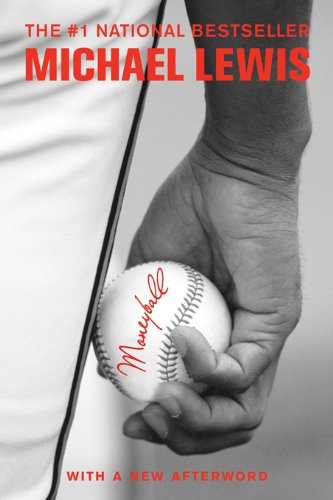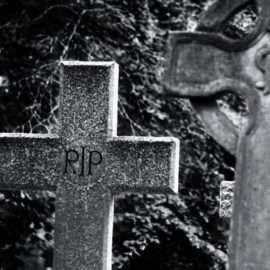

This article is an excerpt from the Shortform summary of "Moneyball" by Michael Lewis. Shortform has the world's best summaries of books you should be reading.
Like this article? Sign up for a free trial here .
Who is Cliff Floyd? Was Cliff Floyd a baseball player, and what role did he play in Moneyball?
Cliff Floyd was a player whom Athletics GM Billy Beane tried to acquire through trades. The Cliff Floyd trade was a failure, but it shows Billy Beane’s shrewdness in acquiring players that fit his plan.
Making the Trades
Despite Billy’s savvy moves, the 2002 Oakland A’s get off to a rocky start. By mid-May, they are on a losing streak and are six games below .500. Clearly, they are not on pace to meet DePodesta’s 95-win benchmark for a postseason appearance.
The trade deadline looms ahead on July 31. After this date, teams cannot conduct trades until the end of the season. The trade deadline is a moment of reckoning for every team in the major leagues, when they must take stock and determine whether they are still in contention for the playoffs or whether they should begin planning for next season. Teams that are doing well might decide to be aggressive at the deadline and give up future assets to acquire star players. Teams that are out of contention, meanwhile, will offload expensive stars in exchange for younger and cheaper prospects.
Billy always excels at the trade deadline. Since 1999, the A’s have always performed remarkably better in the second half of the season, after the deadline, than in the first half. The reason for this is Billy’s shrewdness as a GM and his keen understanding of what his team needs—not to mention the foolishness and shortsightedness of his rival GMs, whose ignorance he consistently exploits.
The Attempted Cliff Floyd Gambit
That day, as Billy works the phones, he learns through one of his media contacts thatCliff Floyd, baseball player for the Montreal Expos, is going to be traded to the Boston Red Sox. In this development, Billy sees an opportunity. For while the A’s could never afford to pay a player like Cliff Floyd, he knows that the Red Sox can do so quite easily, and are actually desperate to acquire the left fielder. The Red Sox have violated one of Billy’s cardinal rules about never making a deal out of a perceived necessity—they have convinced themselves that they must have Floyd by any means necessary and are willing to pay any price to get him. This naturally puts Boston in a dreadful negotiating position.
Billy doesn’t want Cliff Floyd to actually play for the Oakland A’s. Instead, he wants to acquire Floyd to use as trade bait for the Red Sox. Cliff Floyd will be pure leverage—almost ransom—in Billy’s negotiations with Boston, enabling him to take whatever he wants from the Red Sox. But first, he needs to actually get Floyd, even if it’s only to trade him a few hours later. And that means he has to kill Montreal’s plans to deal Cliff Floyd directly to Boston.
When Billy speaks with Montreal GM Omar Minaya, he realizes that Boston’s bid is far better than anything he can offer for Cliff Floyd. The Red Sox are willing to give up a slew of coveted major league and minor league players, along with $2 million in cash. Minaya claims to be quite happy with what Boston is offering. Billy’s only hope in this situation is to convince Minaya that the Red Sox are fleecing him and that he could, in fact, be getting far more for Floyd.
Billy proposes to Minaya a three-way trade, in which Montreal will get all of the players that Boston is offering, plus another player from the A’s system. All Minaya needs to do is deal Cliff Floyd to Oakland and let Billy negotiate directly with the Red Sox. What Billy doesn’t tell Minaya is that he plans to extract other players from the Red Sox beyond those whom Minaya has already secured—and those are the players that Billy would be keeping for himself.
The player in the Red Sox system whom Billy most covets is Kevin Youkilis, the “Greek God of Walks.” He is a college player, whose stats had initially jumped out at Paul DePodesta. In 2001, the A’s had targeted Youkilis as a prime draft pickup; the team failed to draft him thanks to the influence of the traditional scouting staff, which still had some say in these decisions at that time.
Youkilis is Billy’s quintessential dream player. Because he is overweight, he has been overlooked and discounted by the collective wisdom of baseball traditionalists around the league. But he also possesses a stellar on-base percentage, an extraordinary ability to grind pitchers down and contribute offense. Billy’s plans to get Montreal to trade him Cliff Floyd is merely a gambit: he wants to use Floyd as bait to get Youkilis.
But Minaya is still skeptical—he is worried that Billy’s machinations will cause his deal with Boston to fall apart. Billy tells Minaya to simply ask for Youkilis in addition to the package of players he’s already getting. He assures Minaya that the Red Sox will raise no objection to Minaya slightly raising the price of the transaction. Billy is certain that Boston management will not allow themselves to be lambasted by fans and the media for letting an overweight, no-name college player like Youkilis stand in the way of acquiring a star like Cliff Floyd.
But Billy has misread the situation in Boston. The new Red Sox assistant GM, Theo Epstein, is a young Harvard graduate, a number-cruncher and sabermetrics devotee in the mold of Paul DePodesta. In fact, he is a keen admirer of Billy Beane and the entire Oakland organization. And Epstein has convinced the Red Sox of the true value of players like Youkilis. Once Minaya asks for Youkilis as part of the deal, the Red Sox know that Billy Beane is somehow behind it, and they’re not willing to part with Youkilis. It now seems that other teams are getting wise to Billy’s strategy.
The Cliff Floyd baseball trade gambit may nor have been successful, but the tides are turning in baseball. Other teams are paying attention to Billy Beane and Sabermetrics—even if he doesn’t successfully make his Cliff Floyd trade.

———End of Preview———
Like what you just read? Read the rest of the world's best summary of Michael Lewis's "Moneyball" at Shortform .
Here's what you'll find in our full Moneyball summary :
- How Billy Beane first flamed out as a baseball player before becoming a general manager
- The unconventional methods the Athletics used to recruit undervalued players
- How Sabermetrics influences American baseball today






